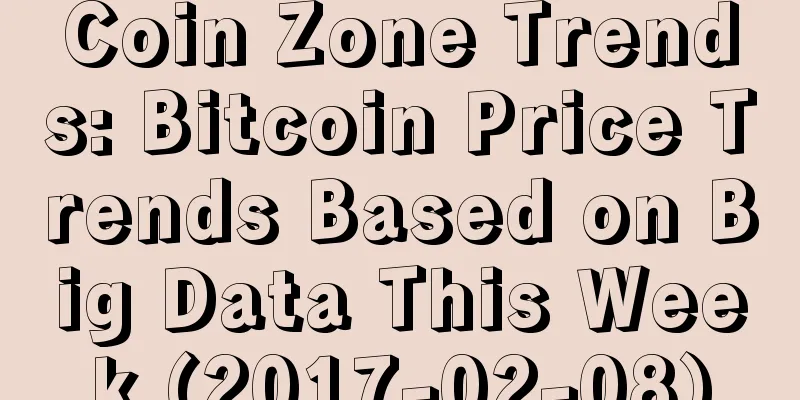Wall Street insiders say: Not entering the crypto space is actually a career risk

|
Source/Fortune Compiled by Ivans (Original title: The talent exodus from Wall Street to crypto will accelerate, predict insiders: 'It's actually a career risk if I don't move into the space') In April 2021, Darren Langer decided to make a big transformation. Langer was working as a managing director at investment firm BTIG, working with clients such as hedge funds. He noticed that it was becoming increasingly difficult to achieve above-market returns on Wall Street over the years. But after reading some of BTIG's research reports on crypto and blockchain technology, Langer thought that just like the boom in early hedge funds, it was obvious to me that history was repeating itself, and digital assets were the only best investable area for Generation Alpha in the next 10 years. "In fact, I've never seen anything clearer than this in my entire career." In April of this year, he took a job as head of institutional investor relations and business development at crypto investment company Arca. Langer is an example of the shift that is happening in the financial industry, something that happens every few decades, when the hallowed halls of mainstream financial institutions begin to pale in comparison to a new, fast-growing promised land. Experts say this is similar to the Dot Com and Silicon Valley era, where some of the generation that experienced the financial crisis, such as David Richardson, a partner at headhunting firm Heidrick & Struggles, said, "I missed the Silicon Valley wave, or I wasn't part of that wave, and this is the new wave, and I want to have a seat at the table in this game." He noted that the company has seen a lot of interest in the crypto field from people with more traditional financial backgrounds, including Wall Street, in its recruitment over the past year. In fact, according to Michael Bucella, general partner at digital asset investment firm BlockTower Capital and a Goldman Sachs alumnus , the financial industry and big tech have been competing for talent for the past decade. He told Fortune: "Now both industries are competing with each other, but more with the world of crypto, decentralized finance, Web3." Bucella said that since he left Wall Street to switch to crypto in 2017, the field has changed a lot, and now people who are interested in this field have a wider range of options than when he left Goldman Sachs. According to insider rumors and many reports last year and in recent months, recruitment in the crypto field has increased dramatically. "We've started to see a range of broader applications, the biggest being DeFi, which is disrupting a lot of traditional finance practitioners and attracting a lot of their talent," Bucella noted. In fact, in January, Bucella told the Wall Street Journal that former colleagues were contacting crypto jobs in droves, and that hasn't slowed down in recent weeks. Such news is constantly coming. In late February, Roger Bartlett, a veteran of Goldman Sachs, left the bank to join crypto exchange giant Coinbase. As Langer said, the company feels particularly interesting, and he has been receiving recruitment calls about crypto. Coinbase recently said it plans to hire 2,000 employees (mainly engineers) this year. Michael Shlayen, founder and CEO of crypto-focused recruiting firm Blockhain Headhunter, said interest in crypto jobs is correlated with the price performance of major currencies like Bitcoin. In past cycles, such as the so-called "crypto winter" in 2018, when Bitcoin sold off, crypto hiring was "pretty quiet." But while stalwart cryptos like Bitcoin and Eth had a rough start to the year, with both down more than 40% from their all-time highs in late 2021, experts like Bucella and Shalyen predict that the number of professionals moving from traditional finance into crypto will continue to increase, at least for now. Crypto companies have bigger budgets On the hiring front, crypto companies have had a slew of recent funding for hiring. The large amounts of money flowing from venture capital firms into crypto startups puts them in a strong position to hire, “pay large salaries, and have even greater potential advantages in token distribution,” Shlayen noted. In February, prominent venture capital firm Sequoia Capital announced it was raising up to $600 million for a token-focused fund, and last week crypto-focused firm Electric Capital raised $1 billion to invest across two funds. Meanwhile crypto exchange FTX launched its own $2 billion venture fund in January, while crypto venture firm Paradigm announced a $2.5 billion fund in November. According to a report from crypto investment manager Galaxy Digital, venture capital firms invested more than $33 billion in crypto and blockchain startups last year. That’s why “even if the market cools, there’s still so much money to build projects and products, and companies will still be hiring heavily,” Shlayen suggested. Bucella believes that in 2022, crypto has crossed the chasm, and there are more channels for professionals to participate in the crypto world than even 18 months ago, as the space has further expanded into areas such as Web3, DeFi, NFTs, and games. Shlayen of Blockchain Headhunters agrees with this prediction, but warns that "if the market continues to develop as it has last year, the exodus from traditional finance will continue and will accelerate. That's my guess, although if crypto like Bitcoin slows down further, this may slow the pace a little bit." According to a recent survey conducted by Heidrick & Struggles between July and October 2021, nearly half of the 45 respondents who entered the crypto field came from investment banks. Like Richardson, there are pull factors for professionals entering crypto, such as doing something creative, flexible, new, high-growth, energetic, and really good technology. He believes that in the short term, more and more professionals will enter the crypto field from traditional financial services, but he suggests that when the talent pool of the crypto community grows large enough, it will run on its own. There’s certainly a perception factor, experts say. Shlayen believes that “Wall Street isn’t really sexy anymore.” And Richardson notes that, anecdotally, “When we first started placing people for crypto companies, what we often heard was, my son or daughter knows how cool I am. They really know what I do now.” But apparently, an exciting job title isn't the only factor that makes professionals consider leaving. A wave of resignations after bonus season? As The Wall Street Journal, The New York Times and other media have reported, big banks have been handing out huge bonuses to retain talent at levels not seen since 2009, even as some companies have warned employees not to expect the same scale in the future. As major banks have paid out large bonuses in recent months, Bucella predicts that we may see people leaving banks and moving into crypto. However, Heidrick & Struggles’ Richardson noted that these bonuses are not all paid out during bonus season and likely won’t be fully paid out or vest for several years, “so anyone who was to leave and work in crypto at a private company would be missing out on these unvested compensation,” he noted. Even so, some big banks are looking to fight back. Goldman Sachs Group Inc. is exploring ways to prevent executives from leaving the firm by confiscating vested stock, according to Bloomberg. The reports surprised Bucella, who said that when he left Goldman, he knew he would likely give up his unvested equity but keep the vested stock. Goldman's problems have largely been employees leaving for competitors or even clients, according to Bloomberg, but Bucella doesn't necessarily think the bank will target employees who leave for crypto companies now. "At some point, maybe a few years from now, they'll look at some crypto startups as competitors, but I'd be surprised if people who left Goldman Sachs to go into crypto were withheld from their vested equity," he said. Regardless, Bucella advises that "if an employee is at a stage where they are considering leaving, generally speaking, this vesting cycle is not going to stop them as much as you might think. They've already made the decision psychologically that they want to pursue another career," he says. Indeed, for David Duong, who left his job as HSBC’s chief FX research strategist for Latin America in November to run institutional research at Coinbase, “the inflection point for crypto assets to mature is clear.” He told Fortune, “It’s like, this is actually a career risk if I don’t get into this space,” adding, “The compensation is not as important to me as the actual work that I’m doing.” Based on their experience, Bucella, Richardson, and Shlayen note that crypto compensation is often in line with base salaries at banks, or even slightly lower, while some crypto startups offer more lucrative equity compensation. Ultimately, BlockTower's Bucella reckons, "despite the banks' best efforts, I don't understand how they can keep the traditional Wall Street contingent. Or as Langer, the former managing director of BTIG, put it, it's not that banks are bad, it's just that crypto is really better." |
>>: Why L2 Scaling May Be More Important Than Eth2.0 Merger
Recommend
How to read a woman's clavicle
The clavicle was once considered the sexiest part...
Round eyes face diagram
Round eyes kind Characteristics of round eyes <...
Eight places that accept Bitcoin you might not expect
As of 2015, the number of merchants accepting Bit...
How is the fortune of men without career lines?
The lines on the palm will also have an impact on...
What is a beauty mole? What does a beauty mole represent?
In mole physiognomy, each mole in different parts...
BTC is about to break, ETH is waiting for good news, is the bull market coming?
Don't worry about having no friends on the ro...
Revealed: Characteristics of rich women’s palms, can you become a rich woman?
Now that women can hold up half the sky, they can...
A brief explanation of palmistry: What are the characteristics of short-lived palms?
I believe that good health and longevity are one ...
He Yi and Sun Yuchen’s Weibo accounts were blocked. He Yi responded: I received a call from Weibo customer service complaining about the account being blocked.
On the evening of December 12, the Weibo accounts...
What does a man's fate line mean when it is broken?
The destiny line is an important line in our palm...
The nasolabial lines in the face indicate the degree of wealth in this life
If a person has an ugly face, he can change it by...
Where does the lucky mole grow?
The moles that can be called "lucky moles&qu...
What is the temperament of people with short philtrum?
Generally speaking, a person's temper is also...
Bitcoin in Simple Terms: Analyzing the Intrinsic Investment Logic of Bitcoin
This article analyzes Bitcoin assets in an easy-t...
Four facial features that are very likely to gain extra money
In numerology, wealth is divided into regular inc...









